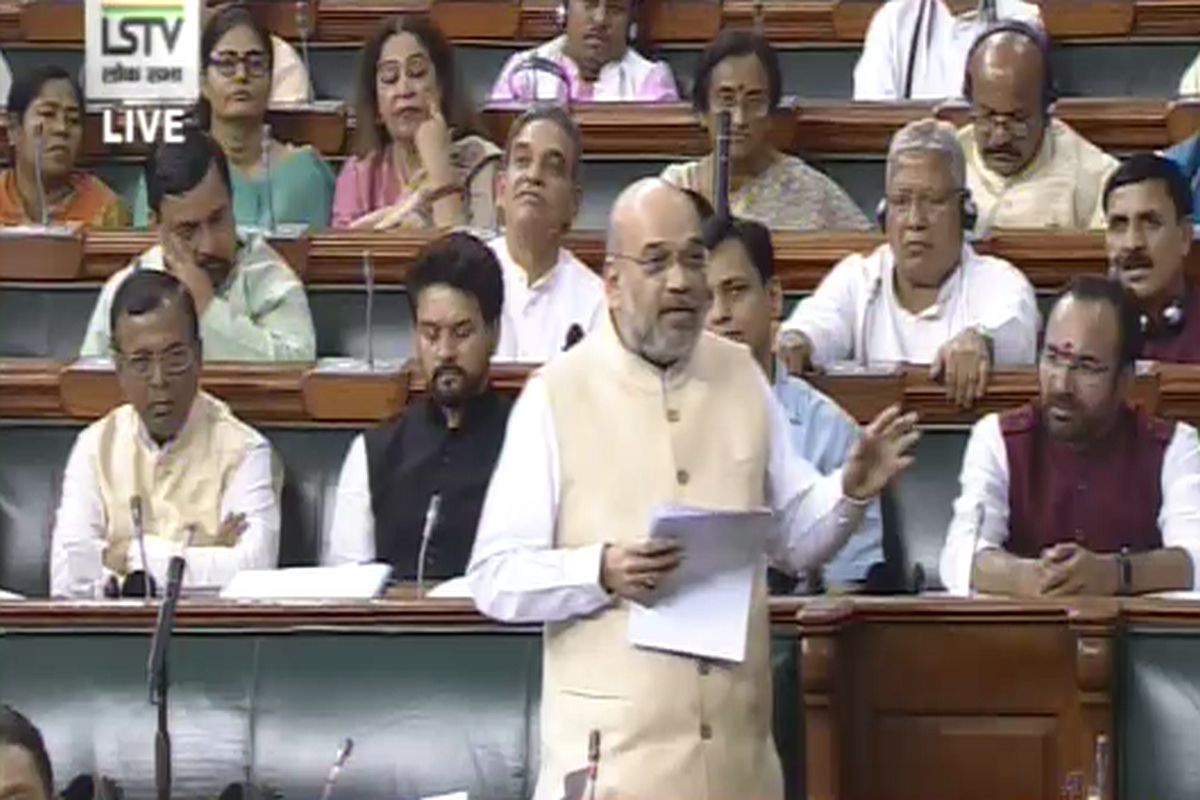The just concluded monsoon session of Parliament, the first of the newly constituted 17thLok Sabha, was indeed a show of strength of the ruling BJP after its massive victory in the 2019 polls. Considered as the most productive in 20 years, the session saw the passage of historic bills like scrapping of Article 370, Triple Talaaq, and amendments to the RTI act.
The government claims that this was the first time since independence that a record number of bills had been passed in one session. Parliament passed 28 of the 38 bills introduced, which is the highest for any session in a decade. The working hours of the two houses were also impressive as Lok Sabha worked for 281 hours, which is 135 per cent of the scheduled hours.
Advertisement
On July 10 the Lok Sabha debated the Budget till 11.15 and the next day the House debated the Rail Budget till 11.58 PM. Even several first time members got a chance to make their maiden speech because the house was functioning. It appears that Speaker Om Birla, who was elected as an M.P for the first time in 2014, had to wait for a year to make his maiden speech and he did not want newcomers to wait long.
The BJP was able to succeed in Parliament mainly because of its floor management. Having triggered quite a few defections and resignations from other parties – big and small – the BJP proved that its minority status in the Upper House did not act as an impediment. The passage of contentious Bills such as the Muslim Women (Protection of Rights of Marriage) Bill, 2019 and the UAPA Bill prove this point. The crowing glory came when it could push through the most controversial bill pertaining to Jammu and Kashmir by repealing Article 370.
Despite having a new parliamentary affairs minister and new whips, the BJP leaders were able to overcome their minority status in the House of Elders by dividing the opposition and isolating the Congress. Not only did they keep their flock together, but also managed to get support from new friends. The Congress, which is the main opposition, lost the plot because the party is going through a leadership crisis.
Moreover, it was not able to get the other parties on board although Congress Parliamentary party leader Sonia Gandhi did convene a meeting of 17 opposition parties to take on the government. The Opposition had in the past often managed to have its way in the Upper House due to its superior numbers. It is commendable that lawmakers worked overtime for the passage of a record number of bills.
However, with all these record-breaking claims, the worry should be that none of the bills introduced in this session was referred to any Parliamentary committee. Despite opposition protests, the bills were bulldozed in both houses. Even a historic bill like the scrapping of Article 370 was passed on the same day with just four hours of debate. Interestingly, copies of the bills were made available to the members even as the Union Home Minister Amit Shah was tabling it on the floor of the house.
The members had just about an hour and a half to send amendments. The House has been passing Bills with extraordinary swiftness; there have been days when more than one Bill was passed. The BJP even withdrew speakers on the UAPA bill so that the bill could be quickly pushed through. In this rush to pass listed bills, there is not enough scrutiny. While the 14th and 15th Lok Sabhas had scrutinised 60 per cent and 71 per cent bills, the 16th Lok Sabha scrutinised only 26 per cent of the total number of bills passed in Parliament.
The point to ponder is how can lawmakers make deep study of these legislations in hours? They are called lawmakers because one of their basic duties is to make laws for the country and they cannot be seen as slipshod in this regard. In fact the committee system had been introduced only to make sure that there was a consensus on the piece of legislation as committees have members from all parties and they are supposed to examine the bill thoroughly.
The session also revealed the division in the opposition ranks, which helped the BJP to a large extent. Backdoor negotiations, and Prime Minister Modi himself talking to the Odisha and Telengana chief ministers for support etc. added to the ruling party’s numbers.
Resignations of some opposition M.Ps like Neeraj Shekhar and Sanjay Singh from the Rajya Sabha and their joining BJP were also significant. The session is indicative of the future, as the BJP need not wait to get a majority in the Rajya Sabha. The monsoon session has proved that the government can push through even the most controversial bill in Parliament. The opposition is reduced to walkouts, and stalling the proceedings.











